Anxiety is something that affects almost everyone on the planet to some degree, but if left untreated, it can be detrimental to our lives.
Let’s explore some simple tips and tricks that really work for dealing with anxiety! Here are ten of the most effective ways I know of for tackling this pesky—and potentially weakening problem.
- How To Deal With Anxiety And Overthinking
- What Are the Emotional Signs of Anxiety?
- How to Deal With Panic Attacks
- How Do I Break My Anxiety Cycle Naturally?
- What Gets Rid Of Anxiety Fast?
- What Is the Best Way to Manage Anxiety?
- 7 Tips On How To Deal With Anxiety
- You Are Stronger Than Your Anxiety
- Questions You May Have
How To Deal With Anxiety And Overthinking
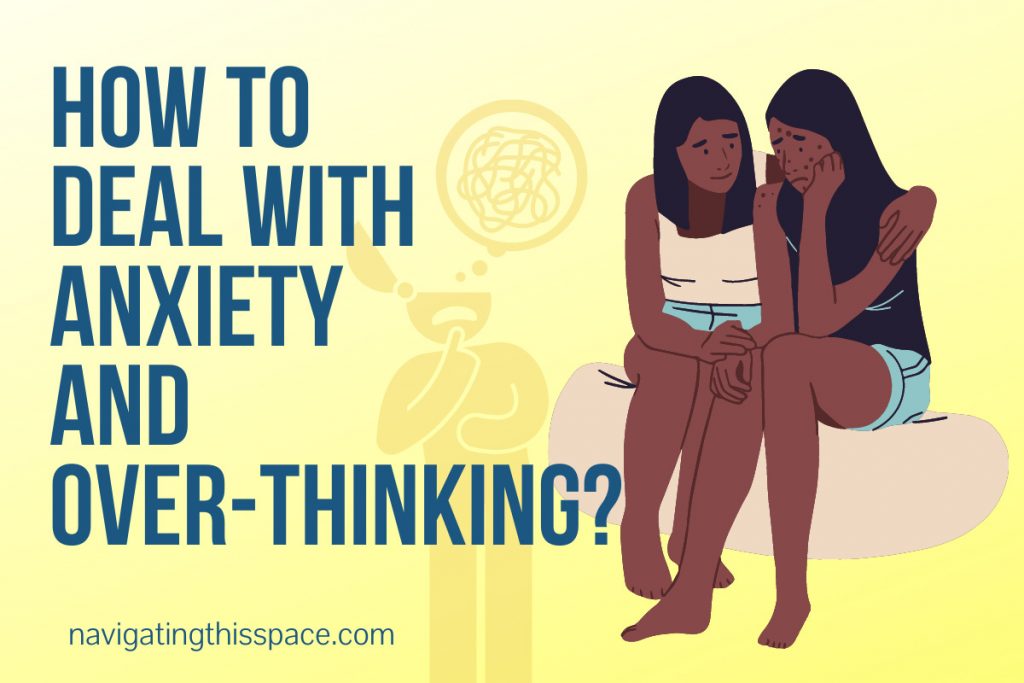
Anxiety is a common problem. Try to remember that you are not alone. Anxiety disorder is very common. According to the Anxiety and Depression Association of America, Generalized Anxiety Disorder (GAD) affects approximately 6.8 million adults; women being twice as likely as men. Many of them live normal, happy lives, yet they struggle with anxiety occasionally or even often.
If you are determined to beat your anxiety, then understand that there is hope! There are a lot of things you can do to beat this, and you are more than strong enough to do it.
What you dwell on and practice will manifest in your life, so make sure to practice being calm, happy, and confident in yourself. That is the first step to changing your mindset and your life.
You need to be aware of what causes your anxiety, what your triggers are, and why you feel the way you do about certain things.
Knowing these things allows you to understand your mind and body thoroughly and also come up with a plan of action of how to deal with each trigger differently.
What Are the Emotional Signs of Anxiety?
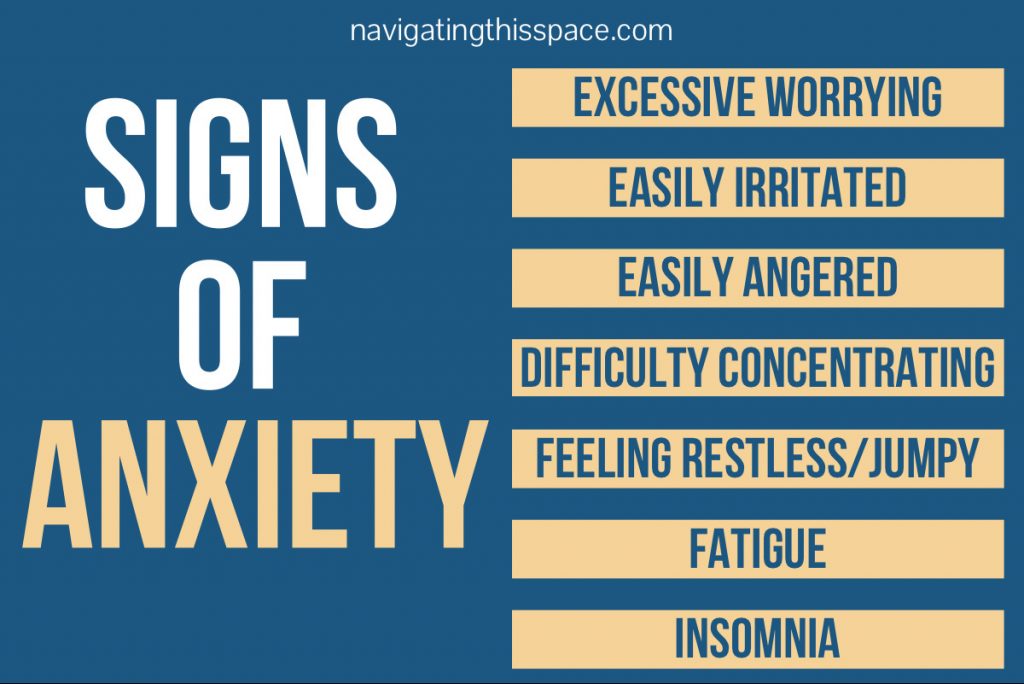
Anxiety is a state of constant worry and nervousness about daily life circumstances, including everything from health issues to finances and relationships.
When left untreated, this overwhelming feeling can bring severe consequences and often interfere with your work, school-related activities, relationships, or even day-to-day tasks.
The most common emotional signs of anxiety include:
- excessive worrying
- being easily irritated or angered
- having difficulty concentrating or focusing on tasks
- feeling restless or jumpy
- experiencing fatigue or insomnia
There are also many ways anxiety can manifest itself in the body. You may experience excessive sweating, nausea, shaking, or even become breathless.
For me personally, I tend to feel jitters in my finger bones, it’s like my first alarm of anxiety. Once it’s set off, I know something isn’t right.
There are some physical signs of anxiety that may include:
- rapid or irregular heartbeat
- nausea or diarrhea
- cold sweat
- trembling or shaking
- shortness of breath
How to Deal With Panic Attacks
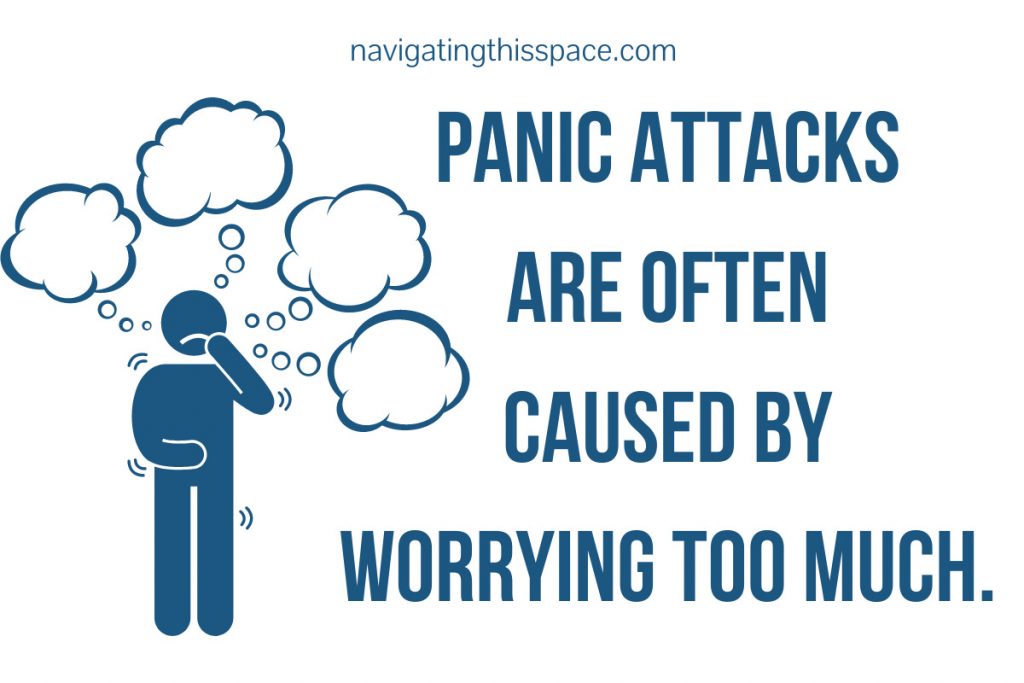
You may have experienced a sudden rush of intense fear or discomfort that can be extremely frightening or feel you’re going crazy or you’re about to die. That’s a panic attack.
If you are in the middle of a panic attack, then you need to calm yourself down before anything else.
Panic attacks are often caused by worrying too much. When your mind is under high stress, it has trouble distinguishing what’s real and what isn’t, so your fight or flight system gets activated.
You can do a few things to get through a panic attack or feel more relaxed so your mind and body have time to recover.
These include:
- Taking deep breaths and counting backward
- Naming five things you can hear, four things you can see, three things you can smell, two things you can taste, and one thing you can touch
- Sitting in one spot for a few minutes while taking deep breaths
- Writing what you’re feeling on a piece of paper or your journal so you can focus on something other than your thoughts
If you are experiencing panic attacks often, seek professional help.
How Do I Break My Anxiety Cycle Naturally?
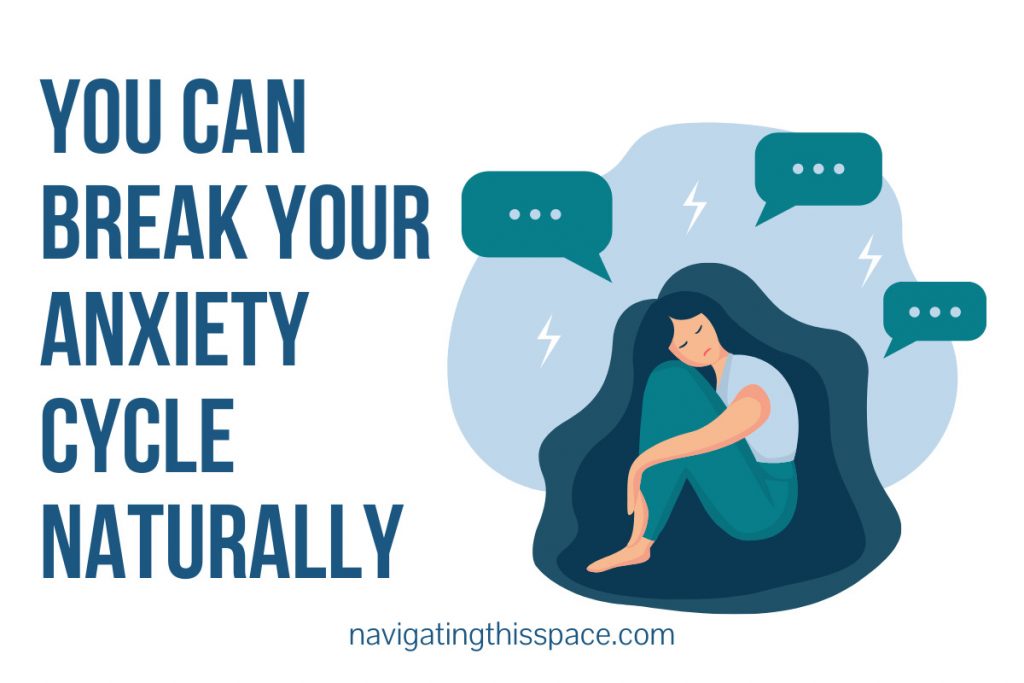
One of the best things you can do is change your lifestyle.
Start by:
- going to bed and waking up at consistent hours
- drinking plenty of water throughout the day
- ending relationships with people who cause you stress and overstress
- identifying and eliminating stressful situations
- practicing mindfulness to quiet your mind and learn to be present
Changing your lifestyle will not be an easy task.
You must be determined and properly prepare yourself for all the challenges you will face.
Small daily implementations of the new habits you want to create will work better than doing them once this week and then skipping the next two months.
Since everything that happens in your life is a reflection of yourself, if something triggers you into an anxiety attack, it’s time to look closely at how you’re living and what you can do to improve your lifestyle and mindset.
You must be willing to commit to this change 100% because it’s not something you can do occasionally and reap the benefits.
Dedication is key.
What Gets Rid Of Anxiety Fast?
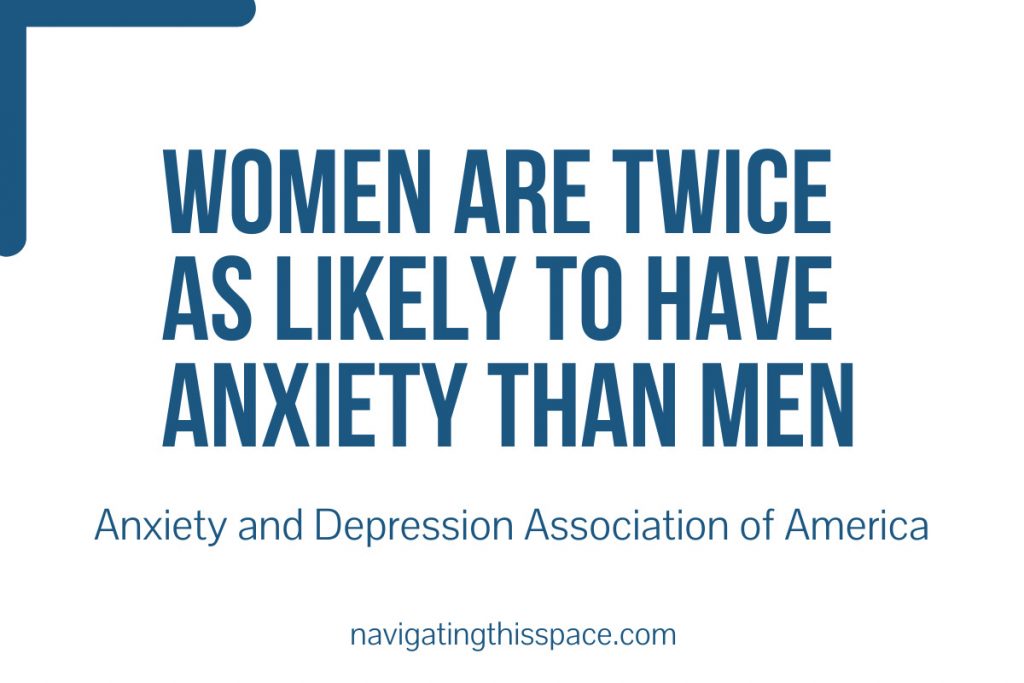
The number one thing that always helps no matter how severe the anxiety attack is breathing.
Focusing on your breathing and controlling it, so you are breathing from your diaphragm and filling your lungs with air will help you relax and stop an anxiety attack fast.
Breathe slow, long, and deep breaths.
Here’s a three-step breathing technique that always works for me and anyone I’m helping through an anxiety attack:
Step 1. Take a deep breath in through your nose till your lungs feel full but stop before you feel any tension in your collar bone area
Step 2. Hold that breath and slowly count to five
Step 3. Slowly release that breath until your lungs feel empty
Repeat as many times as you need to calm your mind and body so you can feel steady again.
What Is the Best Way to Manage Anxiety?
Anxiety can be successfully managed by doing things that make you feel safe, secure, loved, and appreciated. The list goes on, but those are the most essential things.
Depending on your lifestyle, family, and friends, these things might be hard to come by at times.
The best thing you can do for yourself is to learn what you are lacking that’s causing the anxiety in your life.
It took some time for you to develop anxiety, so understand that it will take more time and effort for you to get rid of it.
Here are some suggestions for ways you can reduce your anxiety levels when they start rising:
Take a walk outside in nature. The park is a great place to start to make you feel immersed in nature.
Write in your journal the things and emotions you encountered before you started feeling anxious. This will help you pinpoint your triggers.
Take a cold shower to feel refreshed and re-energized. Cold water activities, especially swimming, have significant health benefits, one of them being an antidepressant.
Do something that makes you feel productive and busy, such as cleaning, laundry, organizing a room in your house, etc. The key is to keep your hand and body occupied, so your mind has less time to wander and stress.
Listening to calming music or nature sounds. This is a great way to clear your mind and channel a relaxing feeling. My favorite song to listen to when I’m feeling anxious is Breathin by Ariana Grande. She wrote that song to deal with her anxiety, and it’s helped me many times.
Take up a fun hobby, such as painting or dancing, that will keep your mind occupied.
7 Tips On How To Deal With Anxiety
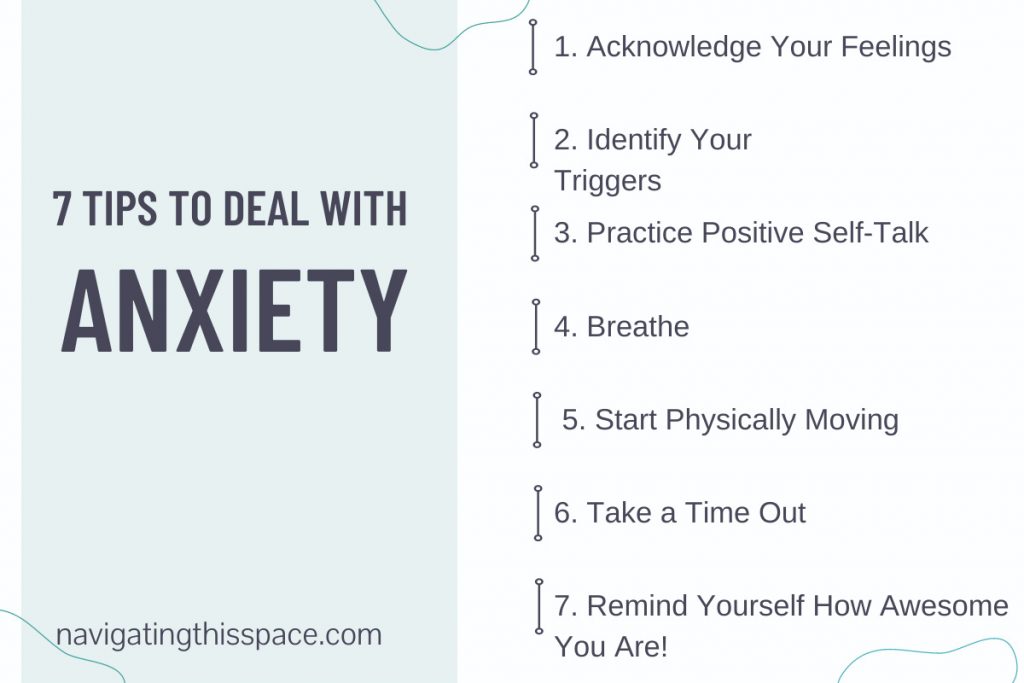
1) Acknowledge Your Feelings
The act of simply practicing awareness of the physical sensations you are experiencing is incredibly beneficial.
How often do you allow yourself to feel all your emotions without blocking them?
How does it feel in your chest, head, stomach, or hands?
Are the sensations fast-paced or slow-moving?
What type of sensations are you feeling?
Analyzing your emotions can help you discover what’s wrong and lead to the identification of your triggers.
2) Identify Your Triggers
What causes you to become anxious?
Not knowing the cause of your anxiety will keep you in a confusing loop of never knowing what’s going on.
If you get anxious when someone stands too close to you, identify it and understand there is a reason for your feelings.
Getting to the root of your anxiety and addressing its causes will assist you in overcoming it completely.
Treating the symptoms is like putting a Band-Aid on a broken leg. It seems like it’s helping, but the root of the problem will still be there, and when you decide to fix the root, you’ll begin to experience positive changes.
3) Practice Positive Self-Talk
You are not your thoughts. It may sound simple, but learning to differentiate between “you” and the negative thoughts constantly buzzing in your head will help you immensely along your journey.
How you talk to yourself has a massive effect on how anxious you feel, so actively practice positive self-talk so you can reinforce the correct messages you want to send yourself.
For example, if you’re feeling anxious and negative thoughts start arising instead of saying, “I feel so anxious, what’s wrong with me?” Redirect those thoughts by saying “These anxiety feelings will pass as soon as they come. And even if they don’t pass now, they will not ruin my day because I have a strong mind.”
4) Breathe
As mentioned earlier, breathing is the number one way to calm your anxious feelings.
When you start feeling anxious, take a few minutes to close your eyes and breathe as deeply as you can, then slowly exhale the stress away.
Utilize the three-step breathing technique I shared above to help ease any lingering feelings of anxiety.
5) Start Physically Moving
When you are feeling anxious, getting up and moving will help your brain release endorphins which are the body’s natural relaxants.
Walking helps clear your mind so you can regain focus on what’s important at that moment.
Dancing is my go-to when I need to get up and move to combat my anxiety. Turning up the music in your stereo or headphones and dancing like no one is watching (even if they are) can help you release the negative energy that’s building.
6) Take a Time Out
You might not be able to quiet your anxiety at times when you find yourself in high-stress, restless situations, but giving yourself a time-out during those times may help keep you from spiraling out of control.
When the feeling becomes too overwhelming, go to your happy place. Maybe that’s your bedroom or another space that’s quiet, calming, and comforting.
Breathe deeply in and out a few times, close your eyes to block out all distractions, or meditate to ease your mind and dissipate your anxiety.
7) Remind Yourself How Awesome You Are
Your ability to calm yourself and pull yourself back from the brink of a full anxiety attack is nothing less than amazing. You are an awesome person, and you deserve to be happy, feel loved, and be the best version of yourself.
Every time anxiety is present, take a moment to remind yourself of your strength and ability to conquer your challenges.
You are a fighter, and you will come out of any battle—especially the anxiety battle—victoriously, so keep going!
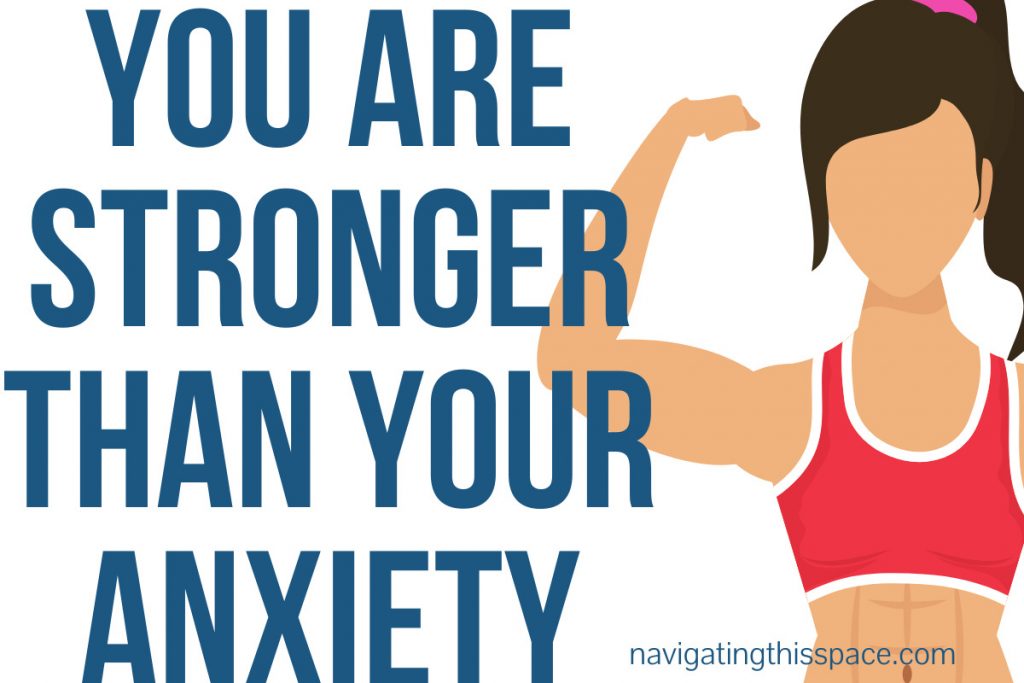
You Are Stronger Than Your Anxiety
Dealing with mental health problems takes time, so don’t feel defeated if an anxiety attack gets the best of you sometimes.
A strong mind is not one that doesn’t experience anxiety, worries, or negative thoughts. It’s one that can recognize all of those feelings and emotions for what they are—temporary emotions—and not let them take over your life.
Reflect on your anxiety attacks and pinpoint what triggered them, then actively work to understand and deal with those triggers.
One way to help manage your anxiety is through self-reflection journaling, which helps you understand the root of your actions, behaviors, thoughts, and feelings.
Journaling is a way to express and understand yourself when you are not able to describe how you feel or what’s going on inside your head.
Writing down these memories and reflections can reinforce them in your mind and help you figure out ways to deal with certain triggers that might be causing your anxiety attacks.
Get a free self-reflection journal prompt here so you can start understanding what’s going on inside your head.
Remember, you are in control of your happiness. No one has the power to take that from you—not even your anxiety.
Questions You May Have
What causes anxiety?
Anxiety is caused by internal or external factors. Internal factors include stress, anxiety disorders already present in your life, and genetic predisposition toward mental illness. External factors like social/environmental changes, lifestyle changes (e.g. loss of job), traumatic events, and other experiences can also trigger anxiety.
How can I get rid of anxiety fast?
The quickest way to get rid of anxiety is to breathe deeply. Focusing on your breath slows down your heart rate, relaxes your muscles, and helps you reassess whatever situation is causing you to feel anxious. Also, when you’re in the moment, remind yourself that this is only temporary and will pass soon.
Can anxiety be cured?
There are good and bad elements of anxiety. It’s a part of life, and most people experience it at some point in their lives. There is no cure for anxiety, but there are treatments that can help you live a better life with anxiety.
Pin It!
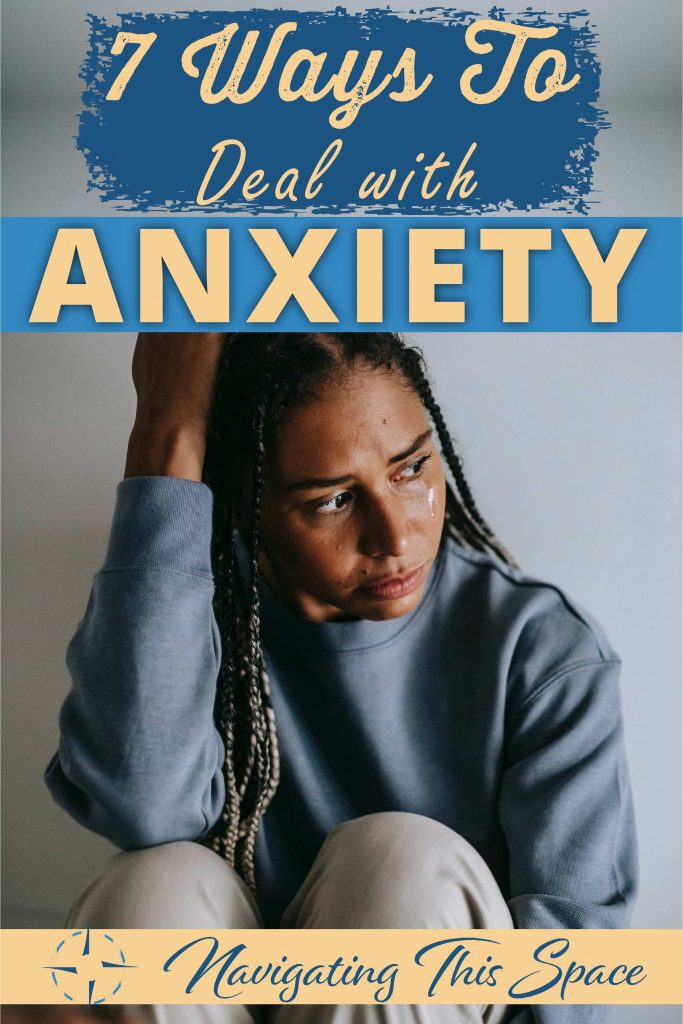
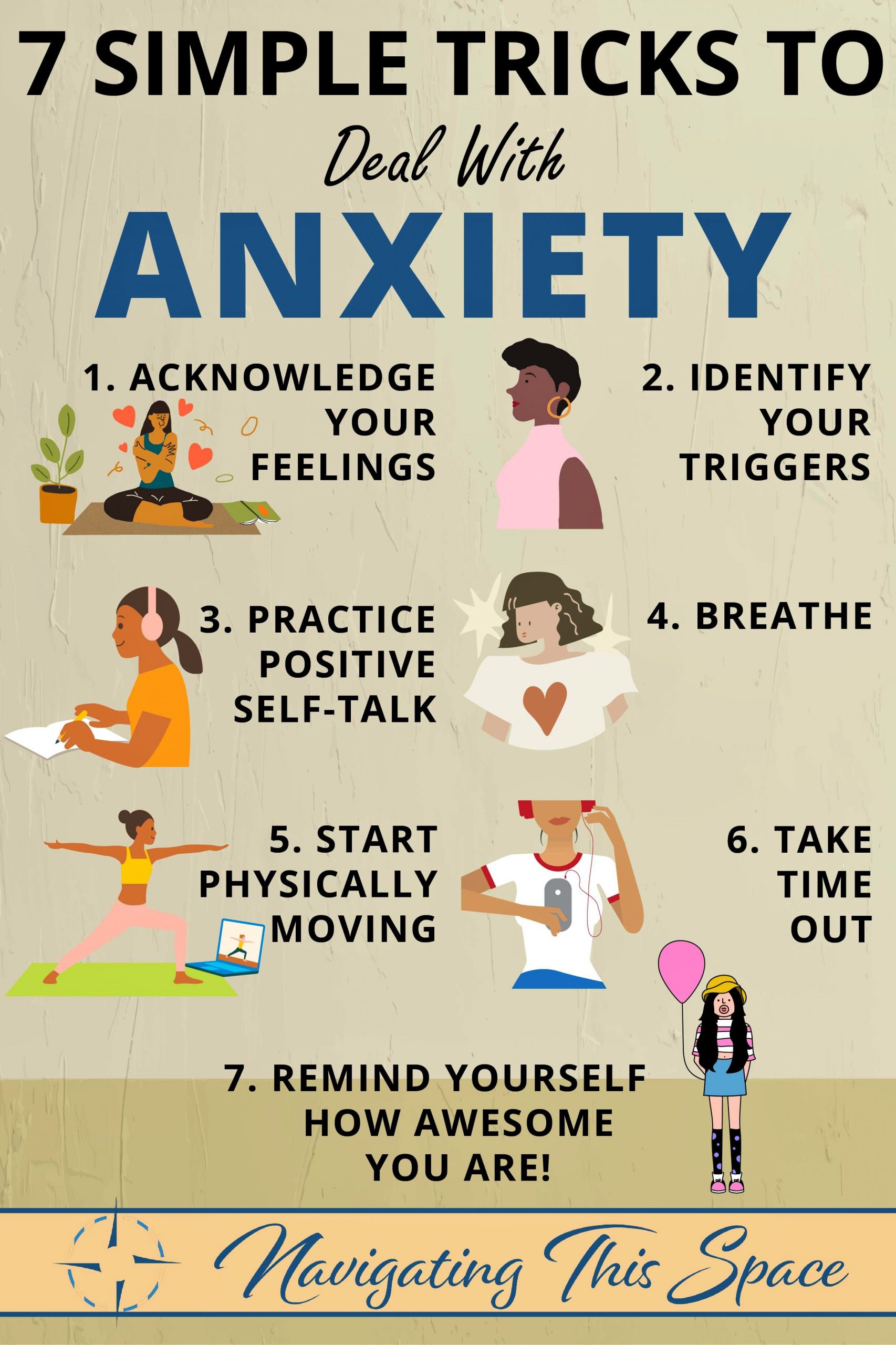

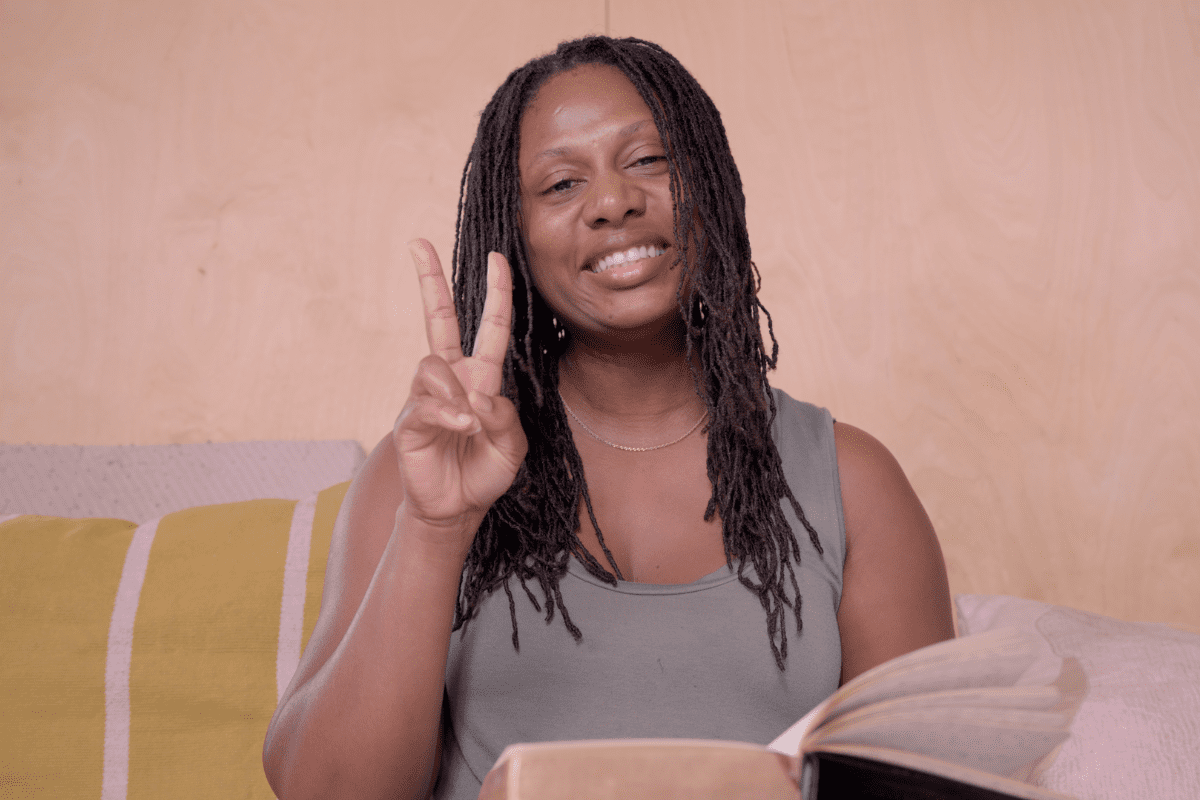
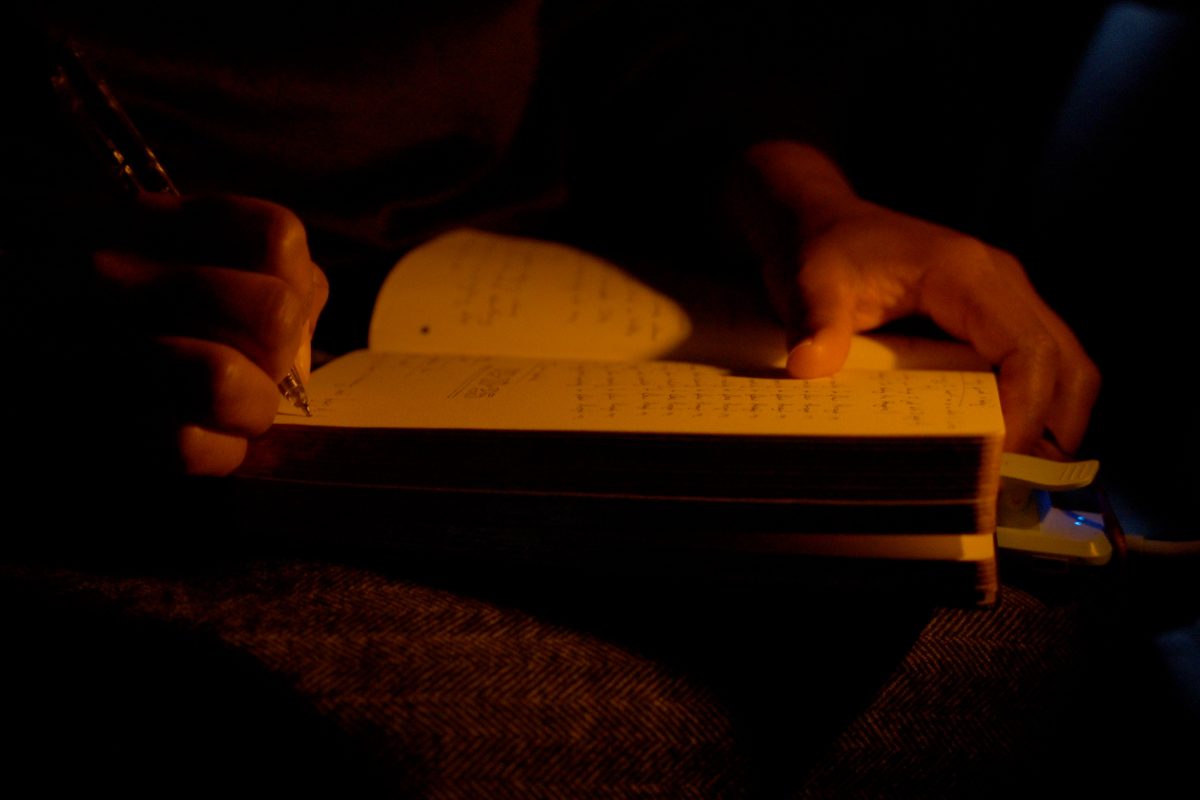
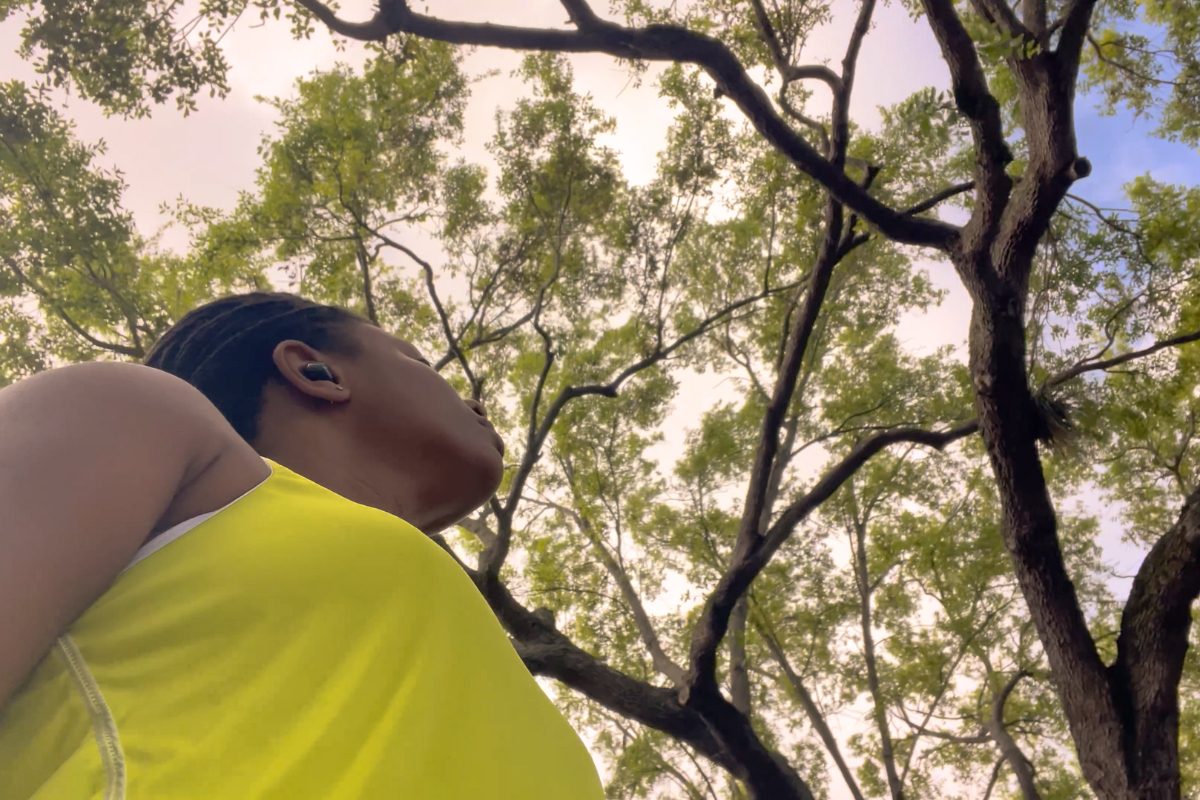
Very informative and helpful.
Thanks for reading!
Anxiety and self-doubt are such big problems, especially when you work from home. You tend to fall into the trap of uncertainty. Thank you for sharing your tips. What helps me most is exercising and journaling. It really changed the way I perceive the world.
You’re very welcome Mariya, exercising and journaling are my favorite!
This was a great read!
Thanks for reading Teala!
These are great tips. I definitely think it’s important to identify triggers and practice self care when it comes to managing my anxiety. I really enjoyed this post.
I’m happy you found this article helpful Kara, thanks for reading, and remember you are stronger than your anxiety!
Very insightful and informative article. I appreciate the tips for overcoming anxiety. Thanks for sharing!
You’re very welcome, thanks for reading!